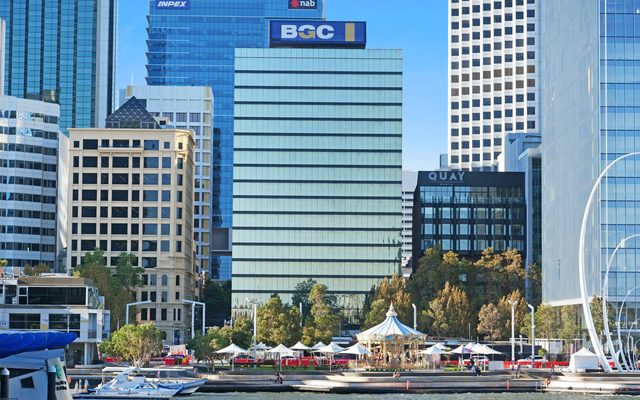This article is from the Australian Property Journal archive
AUSTRALIA’S largest office landlord Dexus posted a massive $1.58 billion statutory loss for FY24, reflecting the ongoing devaluation of office assets.
Dexus’ statutory net loss after tax came in at $1,583.8 million, dropping again from the group’s $752.7 million loss in FY23. AFFO was at $516.3 million, down 7.0% on FY23, with AFFO excluding trading profits at $506.0 million, up 0.2% on the prior year.
The group delivered on its FY24 guidance for distributions of 48.0 cents per security.
“In a challenging environment we have maintained high occupancy across both our office and industrial portfolios, ensuring strong cashflows with AFFO of $516 million,” said Ross Du Vernet, group CEO at Dexus.
“$1.7 billion of balance sheet divestments enabled us to maintain a strong balance sheet with gearing toward the low end of our target band despite the impact of valuation declines.”
Dexus’s NPAT loss was primarily driven by $1,901.6 million in fair valuation losses on investment property, after a $1,183.9 million of fair valuation losses in the year prior.
Portfolio valuations resulted in a total decrease on prior book values of circa 12.9% for the year.
These losses led to the $1.91 or 17.6% decrease in NTA backing per security over the year to $8.97 at 30 June 2024. Dexus achieved a Return on Contributed Equity for FY24 of 4.0%.
Gearing was at 32.0%, at the lower end of the 30% to 40% target range, with $2.5 billion of cash and undrawn debt facilities. The group has a weighted average debt maturity of 4.8-years, with 92% of debt on average hedged throughout FY24.
Moody’s Ratings vice president and senior analyst Saranga Ranasinghe said the result highlight the resilience of the REIT’s good-quality assets across the office and industrial segments, despite a challenging environment.
“Dexus’ office occupancy levels of around 94.8% remain well above the market average, with the portfolio benefiting from flight to quality. The trust’s effective like-for-like income for its office portfolio increased and incentives improved slightly, which remain below the market average.
“Despite falling office asset values, the REIT’s financial profile remains well positioned to withstand any further asset value declines as well as fund its committed developments, with gearing remaining at the low end of its target level of 30%-40%. We expect Dexus to fund its development pipeline in a prudent manner, such that its financial profile remains within the rating parameters.” Ranasinghe said.
Dexus also manages $39.7 billion of funds across its diversified funds management business, with the group securing circa $3.2 billion of transactions across the funds platform during the year.
Dexus’s $14.8 billion portfolio is largely made up of $9.8 billion in office assets and $3.6 billion in industrial assets.
With rent collections for the Dexus office and industrial portfolio remained strong at 99.5%.
The office portfolio had an occupancy by income of 94.8%, a WALE of 4.7-years, WACR of 6.05% and average incentives of 27.9%.
Within the office portfolio, effective like-for-like income growth was down to 0.5%, while on a face basis, excluding amortisation, like-for-like growth was 2.5%.
While the industrial portfolio had an occupancy by income of 96.8%, a WALE of 4.3-years, WACR of 5.45% and average incentives of 16.5%.
Dexus’ real estate development pipeline is at $16.1 billion, with $7.9 billion within the Dexus portfolio and $8.2 billion within third party funds. With circa $675 million committed spend on its pipeline until the end of FY25.
The group undertook circa $4.9 billion in transactions across the platform, including $4.6 billion of divestments and $0.3 billion of acquisitions. With a further circa $2 billion of Dexus assets earmarked for divestment over the next three years.
Dexus is looking to put a further $100 million of Melbourne offices on the market, with the Dexus Wholesale Australian Property Fund divesting 425 Collins Street in the CBD and 636 St Kilda Road.
“Barring unforeseen circumstances, for the 12 months ending 30 June 2025 Dexus expects AFFO of circa 44.5-45.5 cents per security and distributions of circa 37.0 cents per security,” added Du Vernet.
“Markets move in cycles and while conditions are presently challenging, we invest for the long term. The assets we own, manage and develop, the capabilities we build, and the relationships we forge with clients and customers continue to position us well to deliver superior risk-adjusted returns for Dexus Security holders and our capital partners over the long term.”




